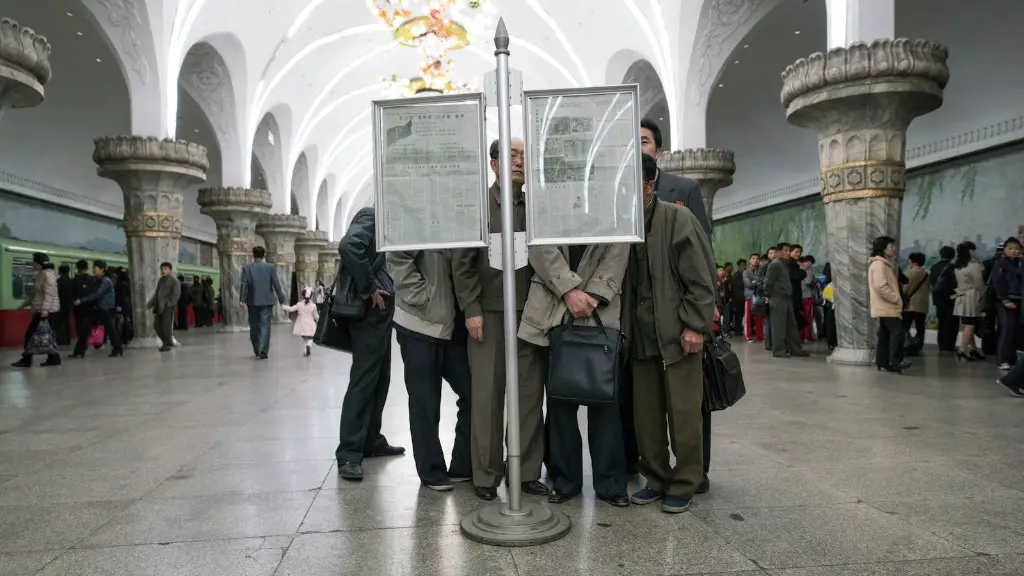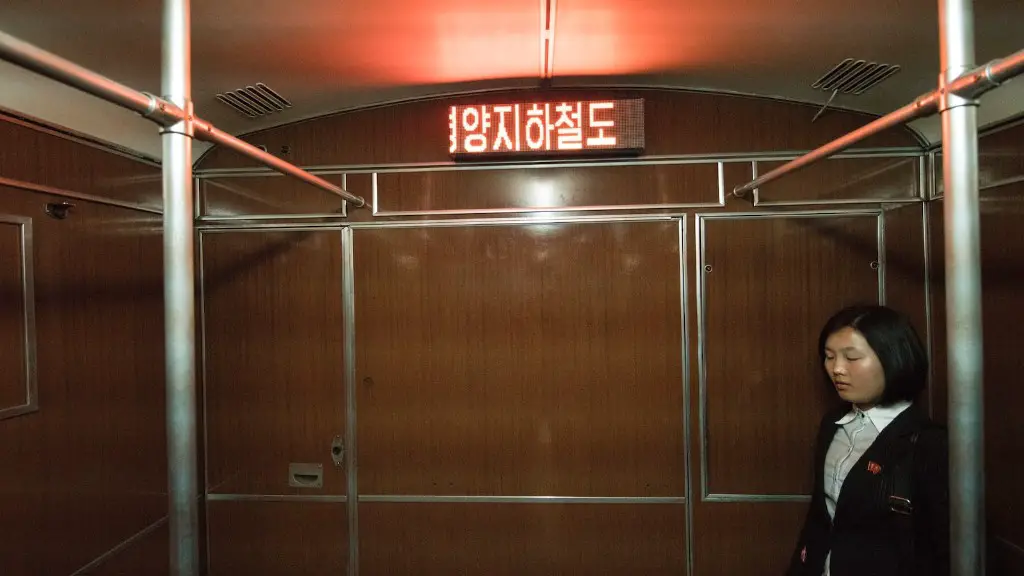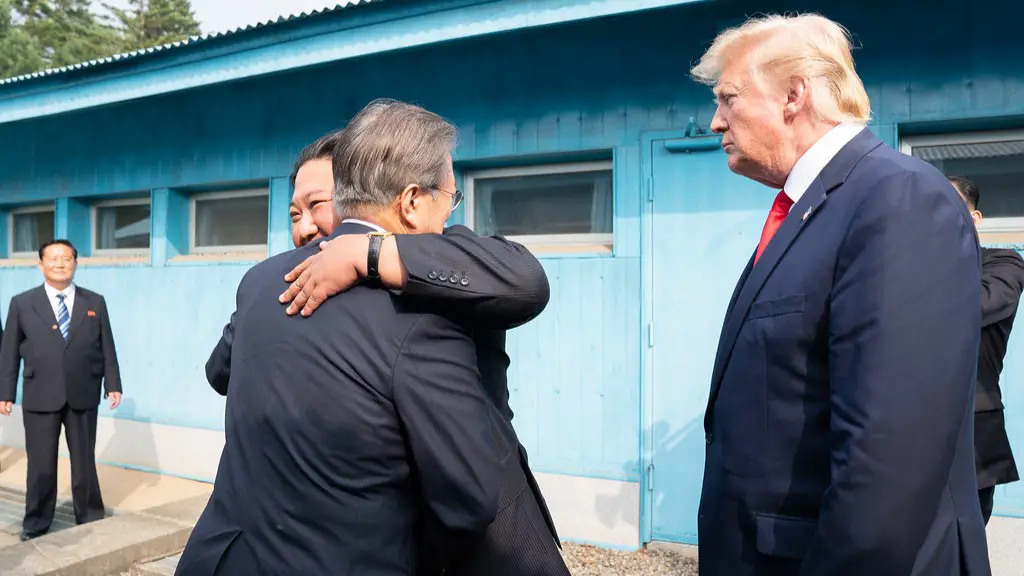Why Doesn’t The US Bomb North Korea?
The United States has been a strong deterrent to North Korea’s nuclear and ballistic missile programs. However, it has refrained from dropping a bomb on the hermit kingdom unlike with countries that have harbored terrorist or sponsored terrorist activity. This article will explain why despite having the capability to, the US does not bomb North Korea.
Firstly, a US bombing campaign on North Korea will cause a high number of casualties on both sides. According to some estimates, as many as two million people could lose their lives if a US-led attack were to take place. This is because North Korea is densely populated and much of its infrastructure is within the range of a US attack. As a result, the US would be killing and injuring innocent civilians, making a bombing campaign a violation of neutrality and international law.
Additionally, a bombing campaign would cause severe economic and political damages. North Korea would suffer severe economic damages, as the destruction of key infrastructure such as dams, power plants, roads and factories could lead to an unprecedented economic collapse. This could have a devastating effect on its already fragile economy, leading to increased poverty levels, hunger, and negative health outcomes. In addition, the US bombing campaign could spark a political crisis, as it would result in instability and increase tensions in the region.
Furthermore, bombing North Korea could bring geopolitical consequences. North Korea has a long history of provocation and aggression, which could lead to an escalation of the conflict if the US were to attempt to bomb it. Moreover, the US’s allies in the region, particularly those in neighboring countries such as South Korea and Japan, could be placed at risk if the US were to bomb North Korea. They could potentially suffer casualties or economic damage if North Korea retaliates.
Moreover, a US attack could further legitimize North Korea’s nuclear weapons program in the eyes of its citizens and other countries. In other words, a US bombing campaign could be seen as an act of aggression, which could lead to North Korea seeking to improve its nuclear arsenal as a form of self-defense. This could have serious implications for the stability of the region, as it could lead to an arms race that could further destabilize the region.
Finally, a US bombing campaign could weaken the United States’ diplomatic position in the world. The US is seen as a defender of democracy and human rights, and a bombing campaign on North Korea would be viewed as a violation of international law and a disregard for human life. This could lead to an erosion of the US’s international standing, as it would be seen as a country that does not value or respect the rules of international law.
Alternatives To US Bombing North Korea
The United States has a variety of options available to deal with the threat posed by North Korea. Firstly, the US and its allies can put pressure on North Korea by imposing economic sanctions on the country. This could be done through a variety of means, from asset freezes and travel bans to the blocking of trade and investment. This can limit the resources available to the government and make it difficult for them to acquire the necessary materials to continue their nuclear weapons program.
Additionally, the US and its allies can engage in diplomatic negotiations with North Korea. This can involve direct negotiations between leaders of the US and North Korea, or multilateral negotiations with the involvement of other countries in the region such as South Korea, Japan, and Russia. This could be a way of finding a peaceful resolution to the conflict and prevent a US bombing campaign on North Korea.
Additionally, the US can provide economic aid to North Korea in exchange for its denuclearization. This can involve the provision of food, education, and medical aid to North Korea in exchange for the complete dismantling of its nuclear weapons program. This could be a way of encouraging North Korea to abandon its nuclear program without resorting to violence.
In addition, the US can leverage its allies in the region, such as South Korea and Japan, to put pressure on North Korea or to act as mediators between the two countries. This could be done through the provision of economic or diplomatic assistance to these countries in exchange for their assistance in pushing for denuclearization of North Korea.
Finally, the US can use its military power to deter North Korea from continuing its nuclear weapons program. This can involve the deployment of troops to North Korea’s borders, the establishment of a no-fly zone, or a naval blockade. This could be a way of preventing North Korea from further developing its nuclear arsenal and enhancing its military capabilities.
North Korea’s Nuclear Capabilities
North Korea has been developing its nuclear weapons capabilities for several decades. In 2006, it conducted its first nuclear test, and since then has made steady progress in its nuclear weapons program. It is now believed to possess up to an estimated 20 nuclear warheads, as well as a range of ballistic missiles which could deliver them to their targets. In addition, North Korea is believed to possess the capability to produce sufficient quantities of weapons grade plutonium and enriched uranium, which could be used to create additional nuclear devices.
Furthermore, North Korea is believed to have a stockpile of biological and chemical weapons, as well as conventional missiles and artillery which could be used to target its adversaries. This has heightened tensions in the region, as it has made North Korea a greater threat to its neighbors. Furthermore, its nuclear arsenal has also made it difficult to deter, as any attack against North Korea could result in the usage of these weapons on US territories or its allies.
Finally, North Korea’s nuclear and missile programs are driven by its leader Kim Jong-un, who is believed to be determined to maintain its nuclear capabilities despite international calls for denuclearization. This is likely due to the regime’s need for self-preservation and enhanced security, as it believes that its nuclear arsenal is the only way to guarantee its survival and protect its sovereignty.
North Korea’s Human Rights Violations
North Korea is among the worst violators of human rights in the world. Freedom of expression, assembly, and association are heavily restricted, and the government subjects its citizens to arbitrary arrest, unjustified imprisonment, and torture. In addition, the state has a history of punishing political dissidents, journalists, and anyone who threatens the power of the ruling regime. This has resulted in an impoverished population, forced labor, and extreme poverty.
The government also strictly controls access to information, with any criticism of the ruling regime subject to harsh punishment. Access to the internet is also highly restricted, and censorship of both domestic and foreign media is strictly enforced. In addition, North Korea’s government imposes travel restrictions, with citizens only able to leave the country with permission from the state.
Furthermore, the state’s restrictions on religion and the freedom of belief are some of the harshest in the world. All religious activities are banned except for those officially sanctioned by the government. Religion is seen as a threat to the regime’s power, and believers can be arrested or sent to prison camps without trial if caught practicing their faith.
North Korea also practices discrimination against minorities, women, and other vulnerable groups. Women are subject to gender-based violence and discrimination, and suffer unequal access to education and employment opportunities. In addition, ethnic and religious minorities are subject to harsh restrictions, with anyone suspected of being hostile to the regime subjected to arbitrary arrest and torture.
International Community’s Response
The international community has responded to North Korea’s human rights violations with further sanctions, arms embargoes, and other measures. The United Nations has imposed several rounds of sanctions, which are designed to limit the country’s ability to access the international financial system. The US and its allies have also imposed targeted sanctions on individuals and entities connected to North Korea’s government or its nuclear weapons and ballistic missile programs.
In addition, the US has sought to engage with North Korea on the issue of its nuclear weapons program. This has included a series of summits between the US and North Korean leaders in 2018 and 2019, which have helped to reduce tensions in the region. In addition, the US has worked with other countries in the region to increase pressure on North Korea, as well as to provide assistance to those affected by the country’s human rights abuses.
Furthermore, the international community has sought to use the International Criminal Court (ICC) to hold North Korea accountable for its human rights violations. The ICC issued an advisory opinion in 2018 that found that North Korea is liable for crimes against humanity, and urged the international community to take action. However, China and Russia have blocked any formal resolution that could refer North Korea to the ICC.
Finally, the international community has responded by providing assistance to North Koreans in need. The UN has launched humanitarian initiatives, such as the World Food Program and the North Korea Human Rights Capacity Building Project, which aim to provide assistance to those affected by the country’s human rights abuses. In addition, there are numerous non-governmental organizations that are providing assistance to North Koreans in both the country itself or elsewhere.
Conclusion
The United States has the capability to bomb North Korea, but it has chosen not to because of its potential consequences. A US bombing campaign on North Korea will be devastating in terms of civilian casualties and economic damage, and could lead to a geopolitical crisis in the region. Moreover, it could weaken the US’s international standing, as well as legitimizing North Korea’s nuclear weapons program. On the other hand, there are alternative ways to deal with the threat posed by North Korea, such as economic sanctions or diplomatic negotiations.





